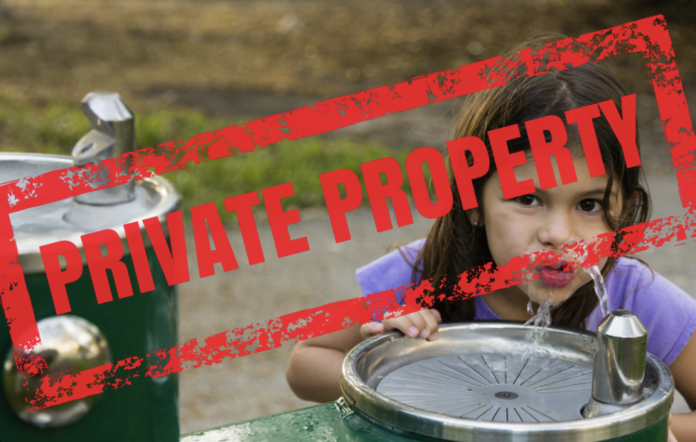Chris Trotters article, ‘The Privatisation two-step: Is three waters a masterpiece of mis-direction?’ had me in complete agreement over concern about privatisation of water.
But the decentralisation of 3 water management (fresh water, sewerage, stormwater) to local councils had failed. The costs for council management is prohibitive, rates are ballooning; some people don’t have water fit to drink; some people have died.
But these actual liabilities of responsibility are also physical assets that can be put into a council balance sheet that can be borrowed against. Business ‘savvy’ local councils have shown themselves adept at borrowing. And from that borrowing a struggle to repay those loans is more likely to create an environment in which conservative councils will push to sell off water, to privatise it, to pay off debt.
Moving to the centralised three waters model will significantly reduce the chances of water privatisation. The governance boards are tasked with delivery of the water services and are fully democratically accountable through national government oversight. Any potential privatisation would be scrutinised on a national level.
The concerns expressed about divisions in Maori between the ‘have’s and the have not’ are real but to link that to Maori leaders being a potential vehicle to water privatisation is a stretch compared to National Party or business leaders being a vehicle to privatisation. That risk is already there so nothing new is being raised by a focus on Maori.
There is a lot of heat but very little substance in anti-3 waters positioning.
Leadership is about providing a vision and how things fit into it. The 3 waters centralised model is fully justified with the current flooding demonstrating the need for infrastructure support to be made at a national level. Not only does it spread the costs of infrastructure but it helps reduce inflation through council rates.
Labour should not back down from 3 waters because it makes sense due to the cost of infrastructure and due to the need to keep inflation down. Mr Hipkins would have little chance of winning an election with high inflation.



But why did the present model of water management ‘fail’? Because the neo-liberals under-invested in infrastructure.
The government could have simply given grants to local councils to fix their dilapidated pipes. They could pass legislation to outlaw the privatisation of council assets.
I could sell the entirety of the water system with one signature if it is nationalised — just like the huge privatisations of the 1980s.
Rates don’t increase all prices, nor do wages. Inflation is an increase in the supply of paper currency, once it enters circulation. If rates go up, other prices will eventually fall due to lowered demand.
Hi Kristoff, Your comment ‘Inflation is an increase in the supply of paper currency, once it enters circulation.’ Is a widely held neo-liberal interpretation of inflation. In this format it is presented as a force or circumstance that is only the responsibility of government. It is also a back door argument to try to reintroduced a ‘gold standard’ concept. i.e. is is designed to tell government – ‘do not do any fiscal stimulus! OR you will create inflation.’ And then the businesses encourage each other to raise prices. Inflation is a chosen reaction to maximise profit.
The only way Labour can give the water control to Maori is to make it a State asset .If this was their aim why not say it and let the punters vote on it .
Comments are closed.